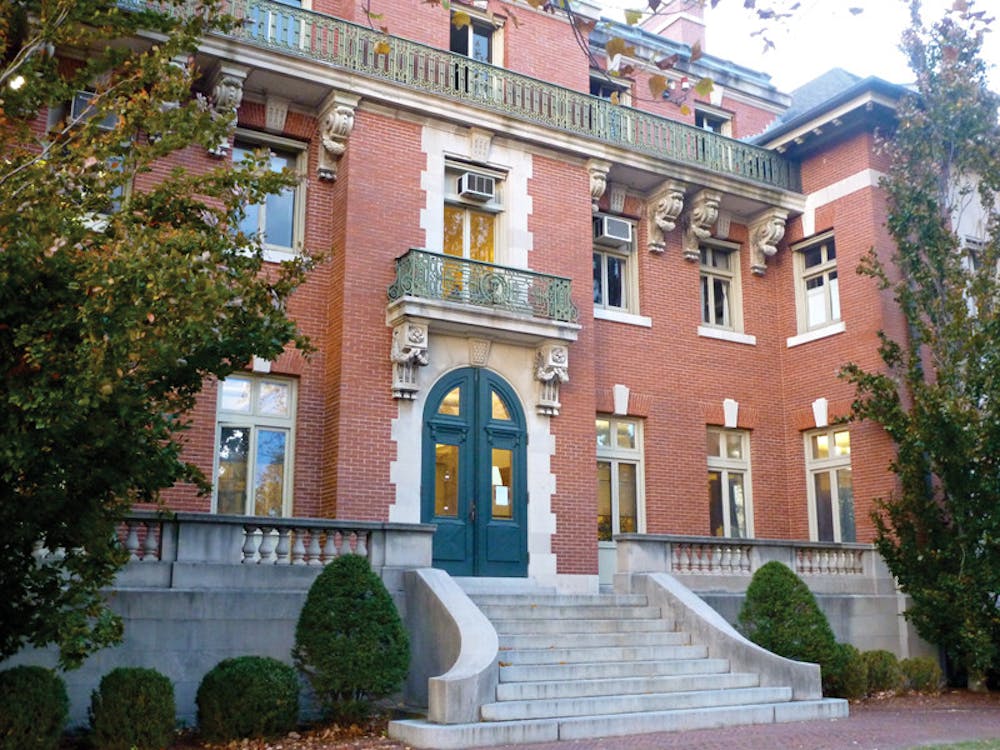Aspiring musicians and passionate amateurs alike can improve their musical abilities on both familiar and exotic instruments — from the violin to the tabla — outside the classroom through the Applied Music Program.
A chance to play
The AMP consists of private lessons for which students receive half a credit per semester, said Matthew McGarrell, faculty director of winds, brass, percussion and jazz for the program. Currently, 118 students participate in the program, Kathleen Nelson, AMP student affairs coordinator, wrote in an email to The Herald.
Auditions, which take place at the beginning of each semester, function as a placement device for the program, McGarrell said, emphasizing that auditions are not incredibly competitive and matter more for demonstrating basic proficiency. But some studios, such as piano and voice, are more selective because there are few teachers and many interested students, McGarrell added.
Though participants in the AMP are often not music concentrators, the AMP is generally not for beginners, he added.
Students not admitted can take private lessons outside the program until they reach a higher level of proficiency, McGarrell said. These lessons are often with the same professors that teach in the program but cannot be taken for credit, he added.
The AMP is an option for students for as many semesters as they would like during their time at Brown, said Paul Phillips, administrator for the strings and conducting division for the AMP.
‘Exotic’ opportunities
The AMP offers lessons for instruments less common in Western culture such as the ’ud and the sitar, Phillips said.
There are “excellent ensembles” in the Department of Music but not in the AMP called “ethnomusicology ensembles” that feature such instruments, he added. For example, in the Javanese gamelan ensemble, members play various tuned metallic instruments, according to the department website.
A lot of interest in studying non-Western instruments comes from international students who took lessons before Brown, he added.
Though it is more difficult to find teachers for “exotic” instruments, the department looks for “teachers who are of high quality who can make the trip to get here,” Phillips said. “Usually it works out.”
The department often looks to cities such as Boston, which have more specialists in such instruments than Providence does, he added. “We try really hard to ... let everyone who wants to study be in a position where they can do so,” he added.
Stars in training
There are a few student musicians who really “stand out” and end up having careers as performers, Phillips said, and the department does its best to give those students the same support a conservatory would give them.
“For a student like that, the Applied Music Program is extremely important,” Phillips said.
But “most students who come to Brown and study an instrument just want to keep improving (at) that instrument,” Phillips said. Many students took lessons for years before college, so private music lessons give them a “kind of continuity from the past,” said Lois Finkel, a teaching associate in violin for the AMP.
Devanney Haruta ’16, who began taking oboe lessons in fifth grade and continued through the AMP, said she “couldn’t really imagine not taking lessons.”
Lifelong impact
Several professors described the impact they said music lessons have on students, in their experiences both at Brown and beyond.
“If you’re a better musician, you’re going to enjoy everything you do here more,” McGarrell said.
For Haruta, who practices in the mornings, waking up and playing is “refreshing” and “therapeutic,” she said.
The student-teacher relationship is another key part of the AMP and private music lessons in general, students and teachers said.
The AMP is a great opportunity to develop a one-on-one relationship with a professor, which can be difficult to achieve, Finkel said. It is evident that music lessons are “very important” to those Brown students who take advantage of them, Finkel added, as many students stay in contact with her after leaving.
“The most important person in my life outside of my family would be my trombone teacher,” McGarrell said. “There are people that have relationships like that with their teachers here.”
Music teaches lessons applicable beyond the world of music, Phillips said.
Each student “develops the discipline and learns certain life lessons through learning an instrument,” Phillips said.
As a teenager, Phillips said, he once had to change one of his techniques for playing the trumpet. The process of fixing it was time-consuming and frustrating, making playing much more difficult. But after two years of practice, he finally achieved the proper technique, and his ability level improved tremendously, he said.
“I could do things that I could never have done before,” he added.
Music also teaches that “things take time — they don’t happen instantaneously, you have to be patient, you have to keep your eye on the long-term goal,” Phillips said.

ADVERTISEMENT




